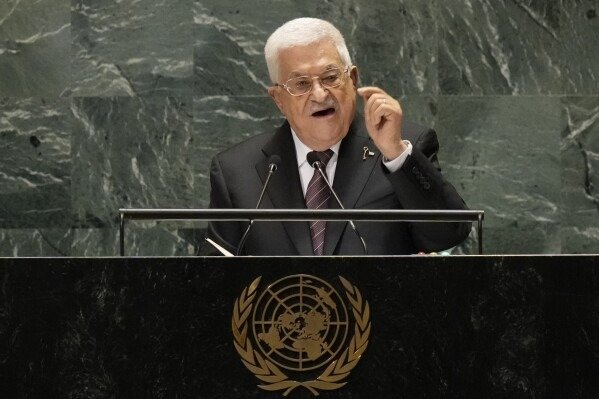The United States has blocked Palestinian President Mahmoud Abbas and about 80 other Palestinian officials from attending next month’s UN General Assembly session in New York, citing concerns that their presence could undermine peace efforts.
US Secretary of State Marco Rubio said the officials sought “the unilateral recognition of a conjectural Palestinian state” and blamed them for bypassing negotiations with Israel. The decision has drawn support from Israel but raised questions about compliance with international agreements governing UN operations.
Typically, the US facilitates travel for foreign officials attending UN meetings. The State Department clarified that Palestinian representatives at the UN mission in New York could still attend the sessions under the UN Headquarters Agreement, which governs foreign participation in UN activities. However, it is unclear if revoking visas for Abbas and other members of the Palestine Liberation Organization (PLO) and Palestinian Authority (PA) aligns with these rules.
Abbas’ office expressed astonishment at the decision, describing it as contradictory to international law and the UN Headquarters Agreement. They stressed that as a non-member permanent observer at the UN, Palestine should be allowed to participate in General Assembly sessions.
Israel’s Foreign Minister Gideon Saar welcomed the move. Prime Minister Benjamin Netanyahu has repeatedly rejected the idea of a two-state solution, arguing that recognizing a Palestinian state would reward “Hamas’s monstrous terrorism.”
The Palestinian Authority, led by Abbas, governs parts of the West Bank but faces challenges from rival groups and expanding Israeli settlements. Meanwhile, Hamas continues to control the Gaza Strip. The PLO, which Abbas heads, represents Palestinians in international forums and has been recognised by the UN since 1974 as the “sole legitimate representative of the Palestinian people.” In 2012, the UN upgraded Palestine’s status to a non-member permanent observer state.
The current visa denial comes amid France’s efforts to push for international recognition of a Palestinian state at the upcoming UN session. The UK, Canada, and Australia have also expressed support for recognition. Rubio, speaking on Friday, stressed that before Palestinians can be considered partners for peace, they must renounce terrorism, including the October 2023 attacks, and stop incitement in education, as required by US law and previous PLO commitments.
He added that the Palestinians must halt attempts to bypass negotiations by pursuing legal cases against Israel in international courts.
UN spokesperson Stephane Dujarric said the UN would engage with the US State Department to try to resolve the issue. He emphasized that all member states and permanent observers should be represented, particularly during meetings addressing the two-state solution, scheduled to be hosted by France and Saudi Arabia.
The decision highlights the tension between international diplomacy, US foreign policy, and Palestinian aspirations for statehood. While 147 of the UN’s 193 member states recognise Palestine, the lack of defined borders and ongoing Israeli settlements in the West Bank complicate meaningful changes on the ground.
As the General Assembly session approaches, the visa denial could influence discussions on Palestinian state recognition and the broader Israel-Palestine conflict, potentially affecting diplomatic relations between Washington, Palestinian authorities, and international partners.







